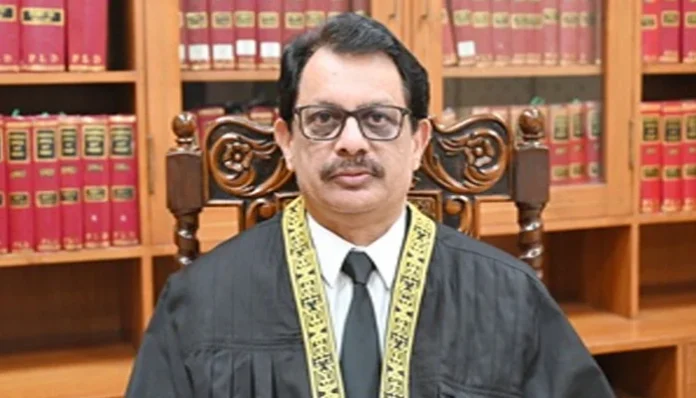ISLAMABAD: A constitutional bench of the Supreme Court was dissolved on Friday when Justice Salahuddin Panhwar voluntarily stepped down from the proceedings on the reserved seats case, following an objection raised by a lawyer representing the Sunni Ittehad Council (SIC).
The controversy stems from the 26th Constitutional Amendment passed in October last year, which expanded the number of judges in both the Supreme Court and the high courts. While the amendment aimed to address the backlog of cases, it faced strong resistance from opposition parties, particularly the Pakistan Tehreek-e-Insaf (PTI).
During the latest hearing, senior lawyer Hamid Khan, appearing on behalf of PTI-aligned SIC, questioned the legitimacy of certain judges on the bench, including Justice Panhwar, citing concerns under the constitutional amendment.
In a written note explaining his decision, Justice Panhwar said: “The judiciary must be trusted by the public. If any party raises a legitimate objection, it is in the interest of justice to step aside.” Addressing Khan directly, he noted: “We have known each other personally since 2010. While your objection hurt me personally, this matter is not about personal feelings, but public trust.”
Justice Panhwar further expressed dismay over allegations of judicial bias, noting that such claims damage public confidence in the judiciary’s impartiality.
Khan welcomed the recusal, but this prompted a sharp response from Justice Amin-ud-Din Khan, who noted that another SIC lawyer was still presenting arguments. Justice Jamal Khan Mandokhail also criticised Khan’s conduct, suggesting that the disruption could have been avoided. “We gave you the floor out of courtesy. You were not even formally entitled to speak,” he said.
Hamid Khan defended his actions, asserting that he had every right to argue the case.
Following a brief adjournment, the hearing resumed with a reconstituted 10-member bench.
The case centers around review petitions filed by the Pakistan Muslim League-Nawaz (PML-N), Pakistan Peoples Party (PPP), and the Election Commission of Pakistan (ECP) against a Supreme Court ruling issued on July 12 last year. That ruling had granted PTI the right to claim reserved seats for women and minorities, which could significantly shift the party’s standing in the national and provincial assemblies.
However, implementation has been delayed, as the ECP raised objections and the National Assembly has not acted on the court’s order.




